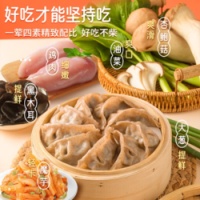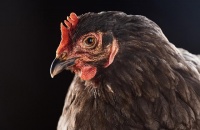儿童青少年饮食自我效能感及健康行为调查
XIONG Min, ZHU Li-qi. Diet-related self-efficacy and healthy behaviors in children and adolescents of Guizhou province[J]. Chinese Journal of Public Health, 2013, 29(9): 1276-1278. DOI: 10.11847/zgggws2013-29-09-09
Citation: XIONG Min, ZHU Li-qi. Diet-related self-efficacy and healthy behaviors in children and adolescents of Guizhou province[J]. Chinese Journal of Public Health, 2013, 29(9): 1276-1278. DOI: 10.11847/zgggws2013-29-09-09
儿童青少年饮食自我效能感及健康行为调查
熊敏, 朱莉琪1, , 1.中国科学院心理研究所发展与教育心理研究室, 北京 100101;
2.中国科学院大学;
3.贵阳医学院公共卫生学院妇幼卫生教研室
详细信息
作者简介:熊敏(1977- ),女,贵州贵阳人,讲师,硕士在读,研究方向:儿童少年卫生与心理发展。
通讯作者:朱莉琪
中图分类号: R179
计量 文章访问数: 02694 HTML全文浏览量: 0324 PDF下载量: 0182563 出版历程 收稿日期: 2011-04-11 刊出日期: 2013-09-10Diet-related self-efficacy and healthy behaviors in children and adolescents of Guizhou province
1.Department of Development and Education Psychology, Institute of Psychology, Chinese Academy of Science, Beijing 100101, China
摘要
摘要: 目的了解贵州省儿童青少年饮食相关行为自我效能感和健康饮食行为现状,为科学开展健康教育及促进健康饮食行为提供依据。方法采用自行设计儿童青少年饮食相关行为自我效能感调查表和健康饮食行为调查表对贵州省9 所学校1 398名在校中小学生(非住校生)进行问卷调查。结果贵州省省会和县级以下地区儿童青少年饮食相关行为自我效能感得分分别为(2.08±0.72)和(2.00±0.61)分,≤12和>12 周岁年龄段儿童青少年得分分别为(2.08±0.63)和(2.01±0.69)分,差异均有统计学意义(P<0.05);省会和县级以下地区儿童青少年健康饮食行为得分分别为(2.67±0.90)和(2.05±0.92)分,男生和女生得分分别为(2.26±0.94)和(2.45±0.99)分,≤12和>12周岁年龄段儿童青少年得分分别为(2.29±0.93)和(2.52±0.87)分,小学、初中及高中生得分分别为(2.33±0.95)、(2.28±0.92)和(2.53±0.87)分,差异均有统计学意义(P<0.01或P<0.001);贵州省儿童青少年饮食相关行为自我效能感与健康饮食行为得分呈正相关关系(r=0.202,P<0.001)。结论贵州省省会和县级以下地区中小学生与饮食相关行为自我效能感和健康饮食行为存在差异,应有针对性开展教育和干预工作,促进儿童青少年形成健康饮食行为。
Abstract: ObjectiveTo investigate diet-related self-efficacy and healthy behaviors in children and adolescents and to provide basis for health education and promotion on healthy diet behaviors.MethodsSelf-designed questionnaires for self-efficacy and healthy diet behaviors were used among 1 398 students from nine primary and secondary schools in Guizhou province.ResultsThe diet-related self-efficacy was different for the children and adolescents of different residential areas,with the score of 2.08±0.72 for the students from provincial capital areas and 2.00±0.61 for those from the county areas.The score of diet-related self-efficacy was 2.08±0.63 for the students older than 12 years and 2.01±0.69 for those at the age of 12 years or younger,with statistically significant difference(P<0.05).The scores of healthy diet behaviors were 2.67±0.90 for the students from provincial capital areas and 2.05±0.92 for those from county areas;the score was 2.26±0.94 for the male students and 2.45±0.99 for the female students;the scores were 2.29±0.93 for the students aged 12 years or younger and 2.52±0.87 for the students less than 12 years old.The healthy diet score was 2.33±0.95,2.28±0.92,and 2.53±0.87 for primary school,junior high school,and senior high school students,repectively,with significant differerences(P<0.01 or P<0.001).There was a significant positive correlation(r=0.202,P<0.001)between diet-related self-efficacy and healthy behavior in the children and adolescents.ConclusionThe diet-related self-efficacy and healthy behaviors are different for the children and adolescents from provincial capital areas and from county areas.Specific education and intervention on diet-related self-efficacy and healthy diet behavior should be implemented among the students.
HTML全文
参考文献(12)
[1] 王剑辉,肖玮,杨小为,等.自我效能感与健康生活方式[J].中国公共卫生,2004,20(6):761-762. [2] 马骁.健康教育学[M].北京:人民卫生出版社,2004:67. [3]Bandura A.Self-efficacy:the exercise of control[M].New York:Freeman,1997:133-134.
[4]Anderson ES,Winett RA,Wojcik JR.Self-regulation,self-efficacy,outcome expectations,and social support:social cognitive theory and nutrition behavior[J].Annals of Behavioral Medicine,2007,34(3):304-312.
[5]Schwarzer R,Renner B.Social cognitive predictors of health behavior:action self-efficacy and coping self-efficacy[J].Health Psychology,2000,19(5):487-495.
[6]Zhang JX, Schwarzer R.Measuring optimistic self-beliefs:a Chinese adaptation of the General Self-Efficacy Scale[J].Psychologia,1995,38(3):174-181.
[7] 边玉芳.学习自我效能感量表的编制[J].心理科学,2004,27(5):1218-1222. [8] 王怡,魏晟,朱桂宝,等.成年人饮食行为量表化评价方法探讨[J].中国公共卫生,2005,21(2):642-643. [9] 潘子儒,黄万琪.大学生营养状况及饮食行为调查[J].中国公共卫生,2010,26(8):530-531. [10] 张萍,张敏,卢家楣.情绪调节自我效能感量表在中国大学生中的试用结果分析[J].中国临床心理学杂志,2010,18(5):568-570. [11] 王平,徐礼平,王俊.医学生择业效能感与心理安全感关系[J].中国公共卫生,2011,27(10):1334-1335. [12] 唐丹,王大华.北京市社区老年人的智力自我效能感[J].中国老年学杂志,2012,32(2):580-582.施引文献
资源附件(0)
计量 文章访问数: HTML全文浏览量: PDF下载量: 出版历程 收稿日期: 2011-04-11 刊出日期: 2013-09-10目录
相关知识
聚焦儿童健康|我国儿童青少年如何控制体重?
国家卫生健康委:儿童青少年肥胖食养指南(2024年版)
国家卫生健康委:儿童青少年肥胖食养指南(2024版)
2022儿童和青少年肥胖:流行病学、原因、评估和管理
关于印发健康中国行动——儿童青少年心理健康行动方案(2019—2022年)的通知
马新东:运动让儿童青少年心理更健康
少年儿童健康监测是指()。
“青少年健康饮食”PPT课件.ppt
儿童青少年健康监测技术规范.pdf
幼儿园儿童健康知识与健康行为调查
网址: 儿童青少年饮食自我效能感及健康行为调查 https://www.trfsz.com/newsview120443.html
推荐资讯
- 1从出汗看健康 出汗透露你的健 3820
- 2男女激情后不宜做哪些事 3682
- 3早上怎么喝水最健康? 3618
- 4习惯造就健康 影响健康的习惯 3277
- 5五大原因危害女性健康 如何保 3172
- 6连花清瘟、布洛芬等多款感冒药 2948
- 7男子喝水喉咙里像放了刀子一样 2451
- 810人混检核酸几天出结果?1 2216
- 9第二轮新冠疫情要来了?疾控中 2211
- 10转阴多久没有传染性?满足四个 2153






